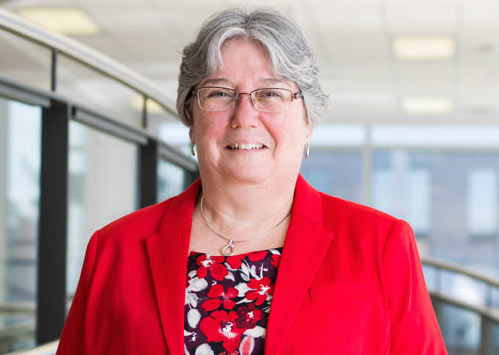CRIW Bids Farewell to Long-time Director, Dr. Merridee Bujaki
The Centre for Research on Inclusion at Work (CRIW) is announcing the departure of inclusion champion, Dr. Merridee Bujaki, who is stepping down after serving in CRIW’s leadership for over ten years. She brought to the Centre her established expertise in gender issues in management and women in the accounting profession. CRIW is grateful for Dr. Bujaki’s dedication and years of service. Dr. Bujaki shared her views on her years at CRIW and what workplace inclusion means to her.
“Making space for others is inclusion”

Early in her career, as a professional accountant, Dr. Bujaki experienced how inequity creates substantial challenges for women in many professions. Her experiences with inequity, along with her undergraduate degree in Cross Cultural Psychology, are some of the influences that inspired Dr. Bujaki’s interest in inclusion.
Reasons for getting involved with CRIW: My interest in women drove my interest in CRIW. I first got involved with the Centre teaching in the Management Development Program for Women. For about ten years before even joining Carleton, I taught accounting to a diverse group of women in the program and really enjoyed it. Shortly after I joined Carleton I was asked to take over as director of the Centre. I saw this an opportunity to give back to other women. I took the leadership position to help women develop the skills that they needed to be able to compete in a world which I knew from my own experiences was not always welcoming.
Views on inclusion: For me inclusion starts from who I am in my own personal identity as a woman and what my own experiences or observations about exclusion have been. I think inclusion tends to be more challenging for people who are diverse in multiple ways. As I get older and through my involvement with CRIW, I see more and more that a lot of what we experience in life is not under our direct control. We are influenced and constrained, or in some cases given opportunities or privileges, by circumstances that we have no real ability to influence. And so, I see inclusion as trying to make the world a better place, a more welcoming place for all kinds of people where we can all benefit and flourish. This realization has influenced how I prioritize my projects. As CRIW broadened its focus to inclusion, I made a deliberate choice to expand my research to look at some of those broader inclusion areas, including mental health and Indigenous peoples in accounting.
Most significant support from CRIW: CRIW’s Writing Retreats have been really valuable. These retreats (sadly halted during the pandemic) created opportunities for women to single-mindedly focus on their writing, but more than that, the retreats were also instrumental in developing a sense of community among faculty members. The connections I made at the writing retreats changed the way I work. I am much more collaborative, much more appreciative of the other people, also much more aware of some of the inequities that exist within academia.
CRIW’s impact on research: I have also benefited from research funding programs available through CRIW. You would be surprised what a $5,000 grant can do. CRIW funded a healthy academic women and work project which was the impetus for a larger grant application. CRIW’s research funding support was the seed that led to a $150,000 partnership development grant, which in turn lead to a $1.425 million SSHRC-CIHR grant involving roughly 25 individual academics from 16 or 17 different universities from across the country.